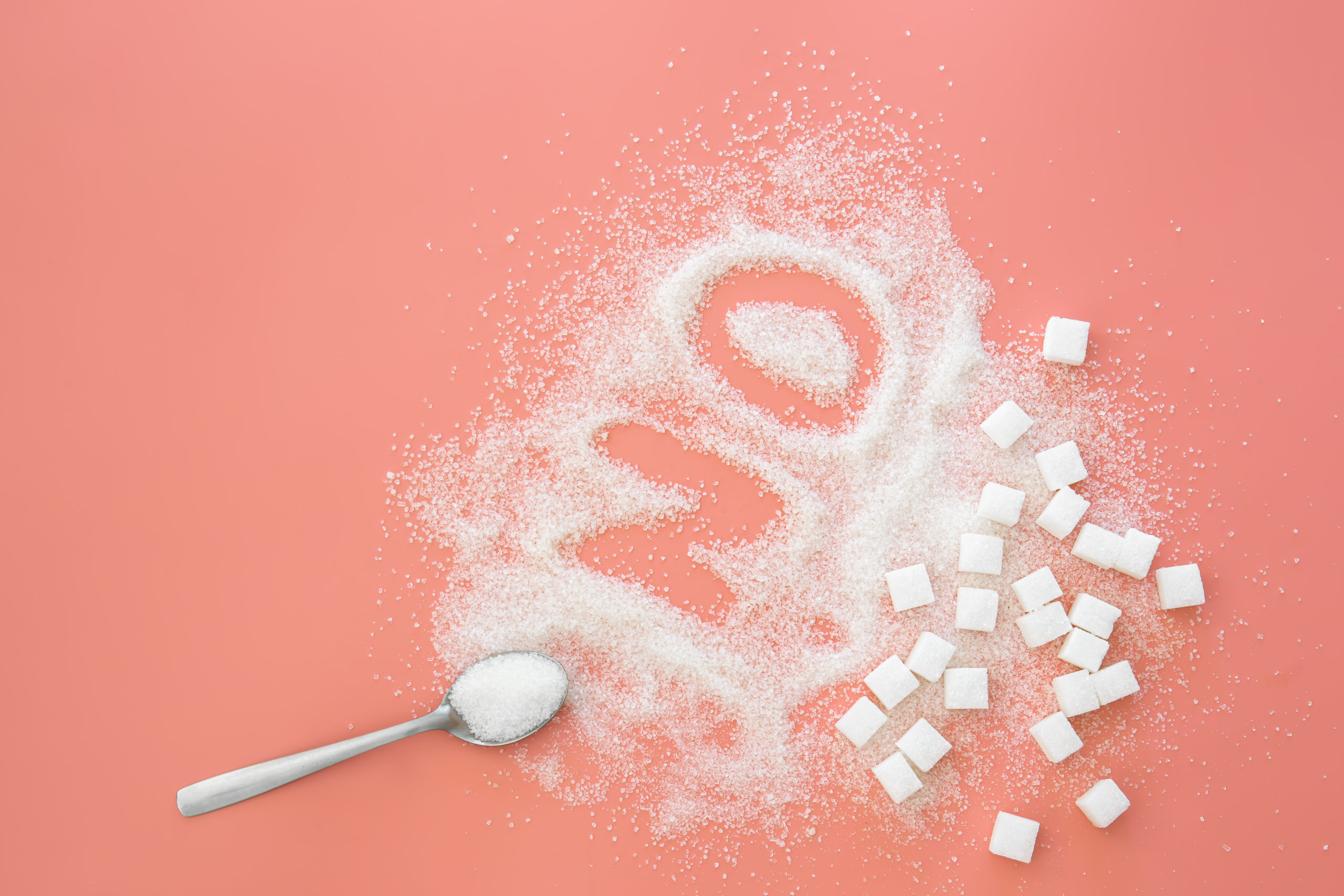Sugar and Health
In a world inundated with sweetness, added sugar infiltrates our diets. While its allure is undeniable, the health implications are grave.
The Unseen Culprit: Hiding in Plain Sight
1. Fact: Nearly 70% of processed foods in U.S. grocery stores contain added sugars, a study in JAMA Internal Medicine reveals.
2. Hidden Sugar: Yogurt cups, granola bars, and pasta sauces can harbor significant amounts of added sugar, silently adding to our daily intake.
In other words, most processed foods contain added sugar, even in products that don’t taste sweet, like sausages or ham.
Here’s why:
- Flavor Enhancement: A small amount of added sugar can balance out other flavors in savory foods like sauces, dressings, and even meats. It can make them taste more complex and appealing.
- Preservation: Sugar can act as a preservative, helping some processed foods last longer on shelves. This can be a benefit for manufacturers but not necessarily for our health.
- Texture: Sugar can affect the texture of processed foods. For example, it can help brown meats during processing or create a smoother texture in sauces and dressings.
- Cost-Effectiveness: Sugar is a relatively inexpensive ingredient compared to some alternatives. This can be a factor for manufacturers looking to keep production costs down.Here are some specific examples of it can be hidden in savory processed foods:
- Sausages and Ham: These meats may contain added sugar to enhance flavor, balance out smokiness, or improve texture.
- Salad Dressings: Even seemingly healthy salad dressings can be loaded with sugar. Opt for homemade dressings with olive oil and vinegar or choose low-sugar options.
- Tomato Sauce: Many store-bought tomato sauces contain added sugar to balance out the acidity of the tomatoes. Look for unsweetened varieties or consider making your own.
- Soups and Canned Vegetables: It can be added to soups and canned vegetables to improve flavor or act as a preservative.
Choose low-sodium options and rinse canned vegetables to remove some of the added one.A Bitter Sweetness: The Obesity Connection
1. Fact: Over 42% of U.S. adults are obese, according to NHANES.
2. Sugar and Weight Gain: Added sugars are calorie-dense but nutrient-poor. Consuming more leads to weight gain, which in turn poses health risks.
Metabolic Mysteries: Sugar and Diabetes
1. Fact: About 34% of U.S. adults face insulin resistance, a precursor to Type 2 diabetes, as reported by the CDC.
2. The Sugar Effect: Excessive glucose intake can cause blood sugar spikes, leading to insulin resistance and potentially diabetes.
Sweet Onset: Heart Health in Peril
1. Fact: Cardiovascular diseases account for 1 in 3 deaths in the U.S., CDC statistics reveal.
2. Sugar’s Role: High sugar intake contributes to elevated triglycerides and reduced “good” HDL cholesterol, factors in heart disease.
Liver’s Lament: Sugar and Non-Alcoholic Fatty Liver Disease
1. Fact: NAFLD affects up to 25% of Americans, notes the American Liver Foundation.
2. Sugar’s Impact: Excessive sugar intake leads to fat accumulation in the liver, a key feature of NAFLD.
Tooth Troubles: Sugar’s Sour Relationship with Oral Health
1. Fact: 9 out of 10 U.S. adults suffer from cavities, according to the National Institute of Dental and Craniofacial Research.
2. Sugar and Tooth Decay: Oral bacteria thrive on sugar, producing acids that erode tooth enamel and cause cavities.
Charting a Healthier Path: Empowering Choices
Beyond desserts, everyday foods hide it. Recognizing this, we’re at a turning point. By understanding the facts, acknowledging the risks, and consciously reducing sugar intake, we can shape a healthier future.
Redefining our Relationship with Sugar for Healthier Lives
It’s influence is undeniable and multifaceted. From obesity to heart disease, its impact is vast.
Yet, armed with knowledge and commitment, we can change.
Choosing whole foods, scrutinizing labels, and advocating for reduced your consumption can lead us to a healthier tomorrow.
Reports and Articles



